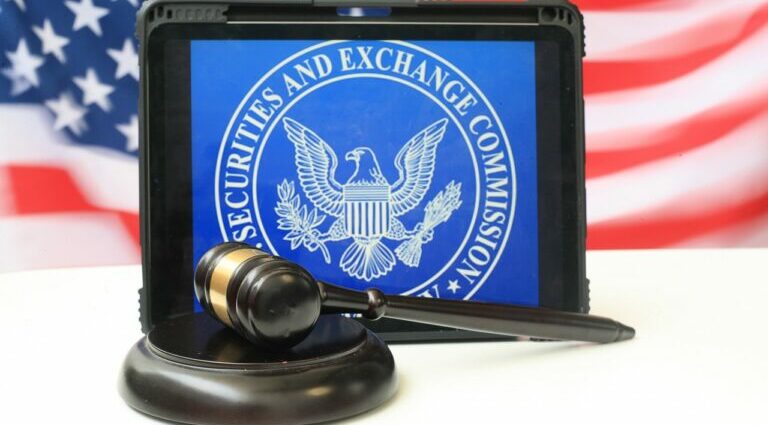Judge Torres’ Ruling on 13 July 2023
In July 2023, Judge Analisa Torres of the U.S. District Court for the Southern District of New York delivered her decision in the case between the U.S. Securities and Exchange Commission (SEC) and Ripple Labs, which began in December 2020. The SEC accused Ripple Labs and its senior executives, Bradley Garlinghouse and Christian A. Larsen, of unlawfully offering and selling securities, in violation of the Securities Act of 1933.
After reviewing the case, Judge Torres issued a mixed ruling. She agreed with the SEC on matters related to Ripple’s Institutional Sales but dismissed other claims. On Ripple’s side, she accepted their defense regarding Programmatic Sales, Other Distributions, and the XRP sales by Larsen and Garlinghouse, but rejected their arguments about Institutional Sales. Importantly, the SEC’s motion for summary judgment, which claimed that Larsen and Garlinghouse aided and abetted Ripple’s violations, was denied by the court.
Delving deeper into the XRP sales by Larsen and Garlinghouse, Judge Torres highlighted that these were conducted anonymously on digital asset exchanges. Given this, she determined that these transactions did not meet certain criteria of the Howey test, a standard for identifying investment contracts.
Furthermore, Judge Torres clarified the nature of the XRP token, emphasizing that it doesn’t inherently qualify as an investment contract under the Howey test.
Judge Rakoff’s Ruling on 31 July 2023
On 31 July 2023, a pivotal decision emerged from the U.S. District Court for the Southern District of New York. Judge Jed S. Rakoff ruled on the case “SEC v. Terraform Labs Pte. Ltd. and Do Hyeong Kwon,” potentially setting a new precedent for the cryptocurrency sector.
The Block highlighted that Terraform, defending itself, referenced the decision in the SEC’s lawsuit against Ripple Labs, overseen by Judge Analisa Torres. The defendants believed this decision weakened the SEC’s case against them. However, Judge Rakoff didn’t buy into this line of defense and decided that the lawsuit against Terraform and Kwon should continue.
Diverging from Judge Torres’ approach in the Ripple case, Judge Rakoff was not in favor of distinguishing coins based on their method of sale. He emphasized that the legal framework doesn’t back the idea that a coin sold directly to institutional investors is seen as a security, while the same coin sold to retail investors through secondary markets isn’t.
Judge Rakoff wrote:
“It may also be mentioned that the Court declines to draw a distinction between these coins based on their manner of sale, such that coins sold directly to institutional investors are considered securities and those sold through secondary market transactions to retail investors are not. In doing so, the Court rejects the approach recently adopted by another judge of this District in a similar case.“
What Attorney Bill Morgan Says About Judge Torres’ Ruling
In a series of insightful posts on X, attorney Bill Morgan delved deep into the recent criticism of Judge Analisa Torres’ decision in the SEC v. Ripple Labs case. Morgan’s analysis, which spanned twelve tweets, aimed to shed light on the nuances of the ruling and counter the critique presented by Judge Jed S. Rakoff.
Morgan began by expressing his difficulty in pinpointing any error in Judge Torres’ decision. He highlighted that it was the SEC itself that categorized the three types of sales in question. Morgan emphasized, “The source of the error cannot be the different treatment of the three categories of sales.” He further pointed out that Judge Torres merely referred to the SEC’s categorization, which was based on the distinct nature of each sale type.
Drawing attention to the Marine Bank case, Morgan underscored the importance of analyzing each transaction based on its unique context. He argued that Judge Torres’ approach was both efficient and fair, especially since she based her analysis on the very categories proposed by the SEC.
Morgan then delved into the distinct differences between institutional and programmatic sales. He noted significant contrasts, such as institutional buyers entering into contracts with Ripple, while programmatic buyers remained unaware of Ripple’s role as the seller. These distinctions, Morgan argued, inevitably led to different expectations between the two sets of buyers.
In his concluding remarks, Morgan defended Judge Torres’ recognition of the varying ‘factual settings’ between the different sales categories. He asserted that the judge’s reasoning was sound and that the objective “reasonable investor” must be viewed within the context of the actual facts of each case. Morgan ended his analysis on a pointed note, suggesting that the SEC might be disappointed with the outcome, but he found no fault in Judge Torres’ logic.
Source: Read Full Article
-
Metropoly Pre-Sale Raised 300k After Releasing Beta
-
Data Lake Launches Consent-to-Earn Medical Data Donation System – Press release Bitcoin News
-
Ripple News : XRP Price Remarkable Surge Amidst Cryptocurrency Rally – Coinpedia Fintech News
-
Shiba Inu Falls As Bears Try To Break $0.00000728 Low
-
Crypto highlighted as 'novel and complex' risk to US banks: FDIC report

